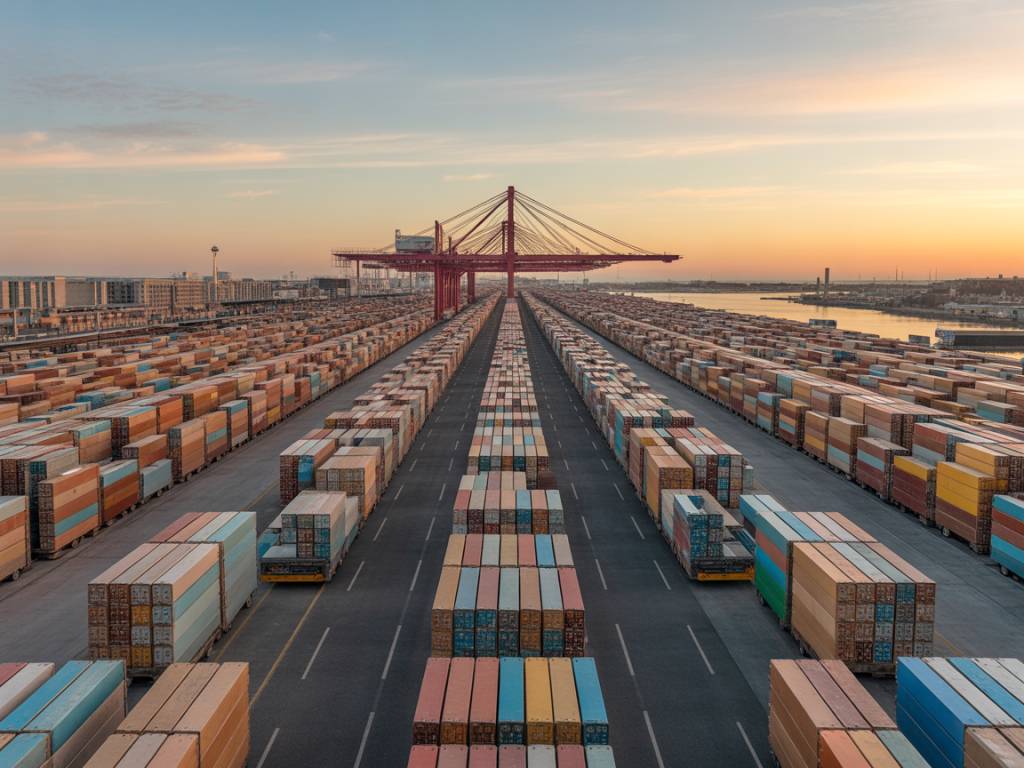Understanding Decentralized Supply Chains in the Modern Economy
The contemporary supply chain has long operated within centralized ecosystems, governed by intermediaries, paper-based documentation, and disparate IT systems. However, the emergence of blockchain technology is rapidly decentralizing supply chains, reshaping how logistics professionals ensure transparency, traceability, and trust across the global movement of goods. As industries like food, pharmaceuticals, fashion, and electronics face increasing scrutiny over ethical sourcing, traceability, and efficiency, blockchain-driven decentralized models provide innovative solutions to longstanding challenges.
What Is a Decentralized Supply Chain?
A decentralized supply chain integrates distributed technologies—especially blockchain—to reduce dependence on centralized authorities and unify all stakeholders through a shared, immutable digital ledger. Unlike traditional systems where data is siloed in enterprise resource planning (ERP) platforms or isolated databases, blockchain enables participants to access a unified source of truth, updated in real time and protected by cryptographic protocols. Each entity—from manufacturer to logistics provider to retailer—retains control over its own data while participating in a transparent, auditable network.
The decentralized setup allows for:
- Improved transparency and trust via immutable records
- Enhanced collaboration without compromising data security
- Streamlined verification processes, reducing paperwork and delays
- Real-time insights on shipment status, provenance, and compliance
Blockchain: The Backbone of Decentralized Logistics
Blockchain serves as the foundational infrastructure for decentralized supply chains. Each transaction recorded on the chain is chronologically organized and visible to all permissioned users, forming a tamper-proof history of all supply chain events. The impact of blockchain in logistics spans several dimensions:
- Traceability: From raw materials to finished goods, blockchain tracks every stage in a product’s lifecycle. Applying blockchain to origin tracking increases accountability and mitigates risks such as counterfeit goods or unethical sourcing.
- Automation Through Smart Contracts: Blockchain enables smart contracts—self-executing code that automatically enforces agreements without human intervention. This reduces lead time, minimizes disputes, and assures compliance with service-level agreements (SLAs).
- Reduced Fraud and Theft: Blockchain’s integrity and immutability make it highly resistant to manipulation and fraud throughout the supply process.
Real-World Applications and Industry Adoption
Several industries are adopting blockchain technology to pilot or fully deploy decentralized logistic frameworks. One prominent use case is the food industry, where end-to-end traceability is crucial for safety and quality control. Walmart, in collaboration with IBM, implemented a blockchain solution that tracks produce from farm to shelf, reducing trace times from days to seconds.
In the pharmaceutical sector, decentralized supply chains help combat counterfeit drugs, a $200 billion global problem. The U.S. Drug Supply Chain Security Act (DSCSA) mandates traceability, and companies are leveraging blockchain to authenticate medicines at every checkpoint.
Meanwhile, luxury and fashion brands are using blockchain not only for anti-counterfeiting but also to certify ethical sourcing of materials. Companies like LVMH and De Beers document diamond and leather origin, sustainability status, and handling history through blockchain records, reinforcing transparency to consumers.
Challenges in Implementation
Despite the transformative potential, transitioning to a decentralized supply chain is not without complications:
- Integration with Legacy Systems: Existing logistical setups and software often require significant adaptation or replacement to be compatible with blockchain networks.
- Scalability: Public blockchains may face performance and scalability issues, particularly with high data volumes and transaction rates typical in large-scale supply chains.
- Standardization: Widespread adoption is hampered by the lack of global industry standards for data formatting, access control, and smart contract protocols.
- Stakeholder Buy-In: Encouraging all members of the supply chain—especially smaller vendors—to participate and digitize their operations can be challenging.
Addressing these limitations requires a collaborative approach involving regulators, technology providers, industry consortia, and logistics professionals willing to invest in change management and technical upgrades.
The Role of IoT and Other Emerging Technologies
Decentralized supply chains are further empowered when integrated with other technologies, particularly the Internet of Things (IoT). IoT sensors can feed real-time data—such as location, temperature, humidity, and shock—directly into the blockchain. This enhances transparency and allows stakeholders to act proactively if deviations occur.
For instance, in cold chain logistics for vaccines, IoT monitors temperature thresholds while blockchain keeps an indisputable record of compliance. This not only increases operational efficiency but also fulfills regulatory requirements more effectively.
Artificial intelligence (AI) and machine learning (ML) can analyze blockchain-stored logistics data to predict disruptions, optimize routes, and prevent potential compliance breaches before they occur. When coupled with decentralized blockchain architecture, these capabilities form a comprehensive and forward-looking supply chain ecosystem.
Opportunities for Future Development
As blockchain platforms shift from pilot projects to enterprise-grade deployments, new business opportunities emerge in the logistics field. Startups are developing plug-and-play solutions tailored for small- and medium-sized enterprises (SMEs), democratizing access to decentralized tools that were once accessible only to large multinationals.
Additionally, tokenization and decentralized finance (DeFi) are being explored as new ways to fund logistics operations. Supply chain participants can raise capital or finance goods-in-transit using digital tokens that represent real-world assets, tapping into alternative funding models with lower transaction costs and reduced credit risk.
Looking ahead, the emphasis will be on interoperability. Initiatives such as the Global Shipping Business Network (GSBN) and the TradeLens project by IBM and Maersk aim to standardize blockchain platforms across supply chains, ensuring that disparate solutions can communicate seamlessly and fostering a more integrated global logistics network.
Summary
Decentralized supply chains, powered by blockchain technology, are revolutionizing logistics through transparency, security, and efficiency. Though implementation challenges exist, the integration of smart contracts, IoT, and AI is demonstrating strong potential for real-time traceability and collaborative operations. As adoption grows, blockchain is poised to become a standard in next-gen logistics infrastructure.




